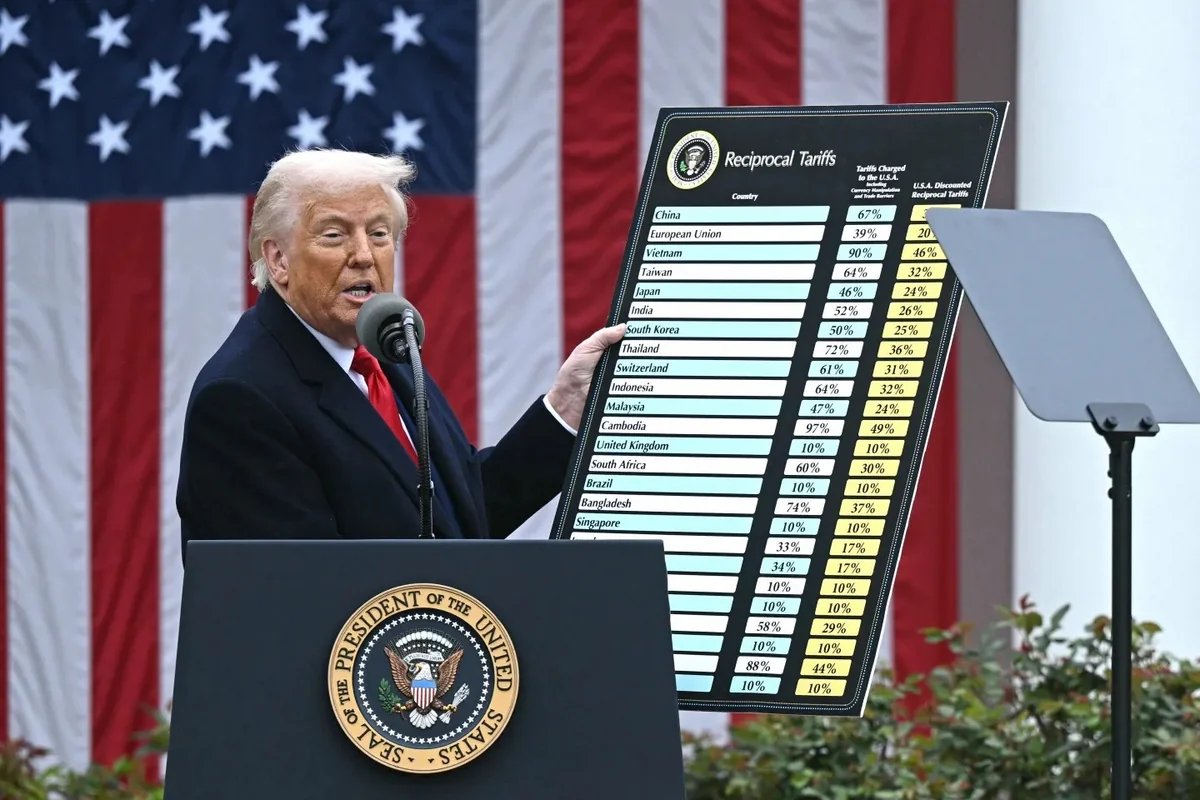First shockwaves of Trump’s tariffs are about to hit world economy
- 20 April, 2025
- 13:33

Three weeks after US President Donald Trump effectively declared a trade war with the whole world, new economic forecasts and surveys will point to the initial fallout, Report informs via Deccan Herald.
A few blocks from the White House, the International Monetary Fund is set to lower its outlook for economic growth in new projections released on Tuesday.
The following day, purchasing manager indexes from Japan to Europe to the US will offer the first coordinated glimpse of manufacturing and services activity since Trump’s global tariffs — now partly on hold — were unleashed on April 2. Business surveys from major economies are also on the calendar.
The combined picture is set to offer finance ministers and central bankers assembled in Washington a chance to make initial damage assessments on Trump’s attempt to rewire the global trade system.
“Our new growth projections will include notable markdowns, but not recession,” IMF Managing Director Kristalina Georgieva said on Thursday. “We will also see markups to the inflation forecasts for some countries. We will caution that protracted high uncertainty raises the risk of financial-market stress.”
Bloomberg Economics Alex Isakov and Adriana Dupita said: “The IMF’s projections tend to skew optimistic during potentially disruptive crises. In the four large crises we studied, the fund’s initial assessment of the immediate impact on global growth understated it by 0.5 percentage points. However much the IMF may downgrade the growth forecasts to start, history suggests the ultimate blow will be worse.”
Those clouds shrouding the global economy are unlikely to lift for a while. Federal Reserve Chair Jerome Powell said on Wednesday that the US central bank is is “well positioned to wait for greater clarity” before considering changes to monetary policy, while European Central Bank chief Christine Lagarde couldn’t say whether uncertainty has peaked.
In the meantime, Georgieva is hoping the coming days, which also feature a meeting of Group of 20 finance chiefs, might lower the temperature in global trade relations.
“We need a more resilient world economy, not a drift to division,” she said. The Washington gatherings “provide a vital forum for dialogue at a vital time.”
Elsewhere, central-bank decisions in Russia and Indonesia, a key euro-zone wage indicator, and the Federal Reserve’s Beige Book will be among the highlights.
In the US, investors will watch for any additional deterioration in consumer sentiment and inflation expectations when the University of Michigan issues revised data April data on Friday. Tariffs, and the risk they pose to both the economy and inflation, have been on the mind of survey respondents in recent months.
